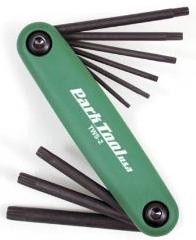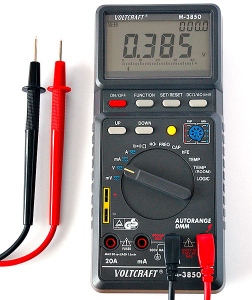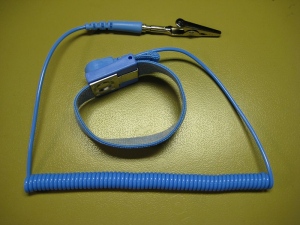If you're a computer enthusiast or an aspiring PC Technician, maybe you're wondering exactly what items you need to create a PC Technician's tool kit. The toolbox itself should be a medium sized plastic toolbox. To fill the toolbox, start collecting the items listed below.
Hand Tools
A technician's tool kit should have a selection of the following hand tools, especially in the smaller sizes.
• Philips screwdrivers
• Regular screwdrivers
• Nut drivers
• Needle nose pliers
• Regular pliers
• Wire cutters
• Adjustable wrench
• Hex Allen wrenches
• Torx wrenches


Special Tools
You may not use these special tools on a regular basis, but they will come in handy when you run into complications.
• Magnetic grabber
• Pincher type grabber
• Small soldering iron
• Wire strippers
• Scissors
• Flashlight
• Magnifying glass
• Multi-meter

Parts
This is only a partial list of spare parts that it would be nice to have on hand.
• AC power strip
• AC power cord with "equipment" end
• 40 pin ATA (IDE) cable
• 34 pin floppy cable
• Network cable (RJ-45)
• Printer cable
• Printer cable 25 pin DB to Centronix converter
• Keyboard cable AT DIN connector to PS-2 connector converter
• Serial port 25 pin DB to 9 pin DB converter
• Serial port 9 pin DB connector to PS-2 converter
• Power supply Molex to "mini" connector converter
Materials
You may not need these materials on a regular basis, but they will come in handy when you run into complications.
• Electrical tape
• Solder
• Heat sink compound
• Stranded wire
Software
• DOS 7 boot disk
• Windows boot disc
• Seagate Disk wizard on bootable floppy or cd
• Western Digital Data Lifeguard Tools
• Evaluation Version Antivirus software
(Norton's or
McAfee's)
• Diagnostic Utilities
Download free diagnostic programs such as #1-PC Diagnostics Company's #1-TuffTEST-Lite.
• Windows system files on CD-R Immediately after you install a fresh operating system, you should copy the operating system files to a CD-R. When Windows informs you that it has a problem because a system file is corrupted or missing, the quickest way to restore that file is to copy it from your system files on CD-R.
• Collection of drivers on CD-R Every time you solve a problem by downloading a driver, you should add that driver to your collection and keep them consolidated onto a CD-R.
Special Items

• Anti-static wrist strap
Professional PC Technicians know how to handle PC components without using a static strap. (Hint: make sure the PC is plugged in and turned off, then keep one hand on the metal chassis while you work.) But as a rule you should use an anti-static strap whenever working inside the PC chassis.
• USB port external hard disk or CD-R
Your customer's (or your) computer may be unstable or you may have to perform a risky procedure to repair it. Before beginning that procedure, ask the customer which files he doesn't want to loose if something goes wrong. Off-load those files to an external drive.
• A lot of patience
This is the most important item in the PC technician's tool kit. The best way to have patience is lower your expectations. It's never a quick and easy fix. Expect complications to develop, don't get disappointed or flustered when they do. You can minimize the impact of complications if you are prepared by having the items listed above in your PC Technician's tool kit.
More Windows Troubleshooting Articles:
• PC Technician's ESD (Electrostatic Discharge) Protection
• How To Service a Nvidia 8800GTS Graphics Card
• How to Recognize and Repair Power Supply Problems
• Introduction to Windows Performance Monitor
• How To Repair Hard Drive Problems
• Examining Computer Hardware Components
• What Should be in a PC Technician?s Tool Kit?
• Troubleshoot Windows with Task Manager
• Hard Drive Does Not Boot
• Buffer Underrun and Overrun Scenarios


